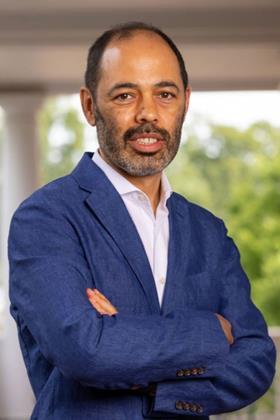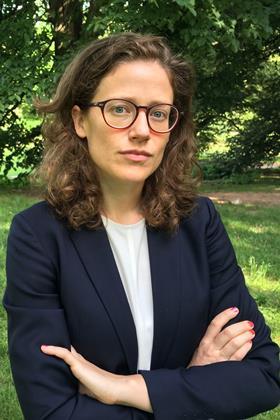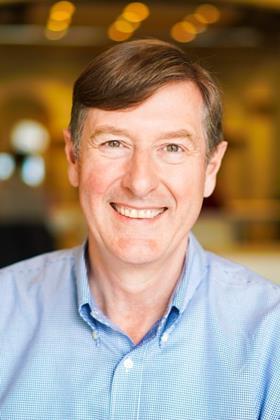The PRI is delighted to welcome the following new members to the Academic Network Advisory Committee. They bring a wealth of expertise from academia, policy and investment practice across fields ranging finance, law, management, market strategy, corporate governance and RI.
Pedro Matos

Macfarlane and Cooper Chair Professor of Business Administration, University of Virginia Darden School of Business
Professor Matos is the Academic Director of the Richard A. Mayo Center for Asset Management at UVA Darden. He is the Vice-chair of the PRI Academic Network Advisory Committee; part of the Editorial Committee for PRI Research Programme blog articles; and a member of the Conference Committee that supports the Academic Network Conference. His research focuses on the growing importance of institutional investors worldwide. It has been published in top academic journals (including in The Journal of Finance, Journal of Financial Economics, and The Review of Financial Studies), as well as in monographs for the CFA Institute. It has received numerous research awards and been featured extensively in the press (including in The Economist, Financial Times, The New York Times, and Bloomberg).
What are the key challenges to responsible investment (RI)?
While RI represents a growing portion of overall capital market investments, it is not defined consistently. This stems from there not being a consensus on the exact list of ESG issues and their materiality. It poses a key challenge to how ESG-aligned are portfolio investments and whether responsible investors really “walk the (RI) talk”. A second challenge is whether RI ultimately leads to corporate change and truly helps achieve sustainability goals.
What benefits can the Academic Network and the PRI’s wider research programme bring to the field of RI?
The Academic Network and the PRI Research Programme can help provide a bridge between academics and practitioners, so that they can work together to better harness the power of financial markets to address pressing sustainability issues. These efforts should be rooted in evidence-based research. Investors can help inform research questions and provide data. The interdisciplinary nature of the Network can also encourage interactions between academics with different perspectives.
What would you like your contribution to be in this work and what would you like to bring to our programme?
I hope to contribute to generate novel research on RI, elevate the profile of the PRI among academics, and increase engagement with practitioners.
Madison Condon

Associate Professor of Law, Boston University
Madison Condon is a leading expert on climate change and financial institutions. Her scholarship on the market’s mispricing of climate risk has been cited by government regulators, including the U.S. Securities and Exchange Commission. Her recent work has been included in collections of the best securities law and corporate law articles of the year and has been covered by top news outlets. Prior to joining Boston University in 2020, Professor Condon worked for the Institute for Policy Integrity at NYU School of Law and was a research fellow at Columbia University’s Earth Institute. She clerked for Judge Jane Kelly on the Eighth Circuit Court of Appeals and was a Fulbright Fellow to the Netherlands.
What are the key challenges to RI?
I think that climate change requires investors to substantially rethink past approaches to risk evaluation and capital allocation. The transition will not be smooth, and it will mostly not come in the form of a carbon price. Physical climate impacts – substantial risks in even the medium-term – must be analysed with a different set of tools and training to what most financial analysts currently have at their disposal. And these risks cannot be approached separately any longer: a drought can result in higher emissions through wiping out hydropower and efficient river shipping.
What benefits can the Academic Network and the PRI’s wider research programme bring to the field of RI?
Solving these challenges will take renewed energy and support for interdisciplinary collaborations and projects. Economists have much to learn from engineers; climate scientists may need a translation of what “basis points” are; and bankers are going to need to get comfortable with words like “downscaling”. Networks like this can help support this project of communication.
What would you like your contribution to be to this work and what would you like to bring to our programme?
I hope that I can take advantage of all there is to learn from this network, as well as spread awareness of constructive critiques of the current framework.
Lloyd Kurtz

Visiting Scholar at the Kellogg School of Management at Northwestern University
Mr Kurtz plays a leading role in the Moskowitz Prize, which each year recognises outstanding academic research in the field of sustainable finance. He was formerly head of Social Impact Investing at Wells Fargo Investment Institute; and prior to that, Chief Investment Officer at Nelson Capital, an asset management firm owned by Wells Fargo. He served on the Sustainability Accounting Standards Board from 2017-2022. Early in his career, he was part of the team that created the Domini 400 Social Index (now the MSCI KLD 400 Social Index), the first broad-based responsible investment index in the United States.
What are the key challenges to RI?
The field is highly multidisciplinary, so mutual intelligibility is a key challenge. Despite the many differences in our intellectual backgrounds and legal environments, investment people must find ways to work more effectively with subject matter experts, regulators, and global organisations such as the PRI.
What benefits can the Academic Network and the PRI’s wider research programme bring to the field of RI?
Strong academic work is vital. As in all investment disciplines, asset owners and managers need strong research to inform their efforts. But in the current noisy information environment it is difficult for them to identify the strongest and most important work that is being done. The Academic Network can help them to focus on the research that really matters. And, by staying close to investment practice, it can encourage academic research in areas that will lead to more effective practice.
What would you like your contribution to be to this work and what would you like to bring to our programme?
My goal is to always try to bring strong empirical work to the widest possible audience, especially when the findings offer clear direction as to future practice. Despite all that has been accomplished, it is still early days for our field. There is still a great deal to do.
Join us soon for part 2 in the series where we spotlight new committee members Christian Leuz, University of Chicago’s Booth School of Business, and Jason Mitchell, Man Group.











